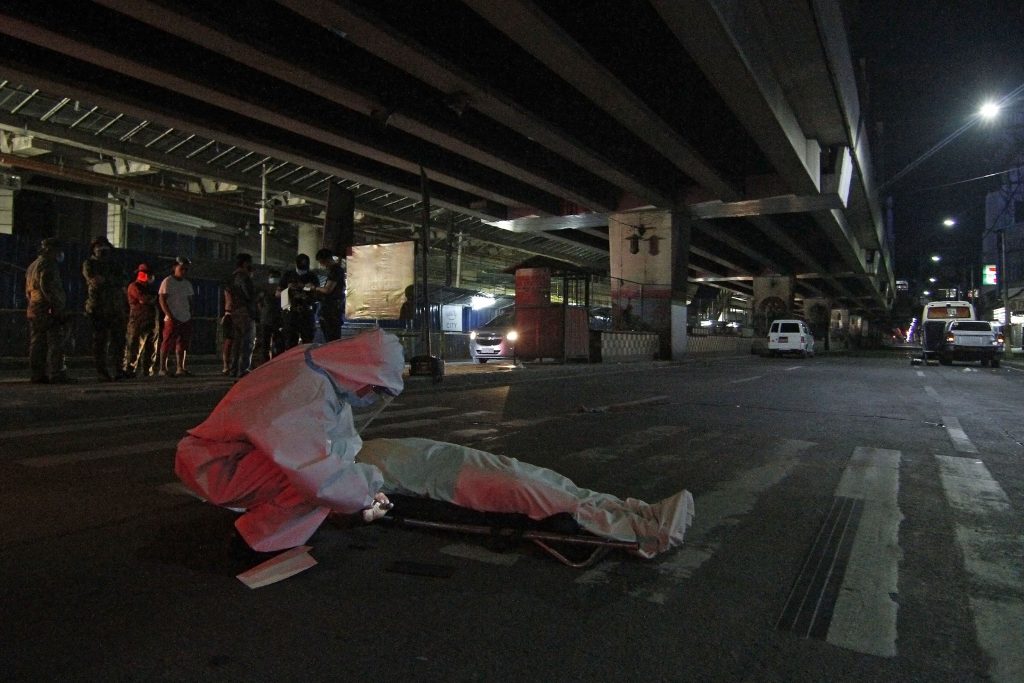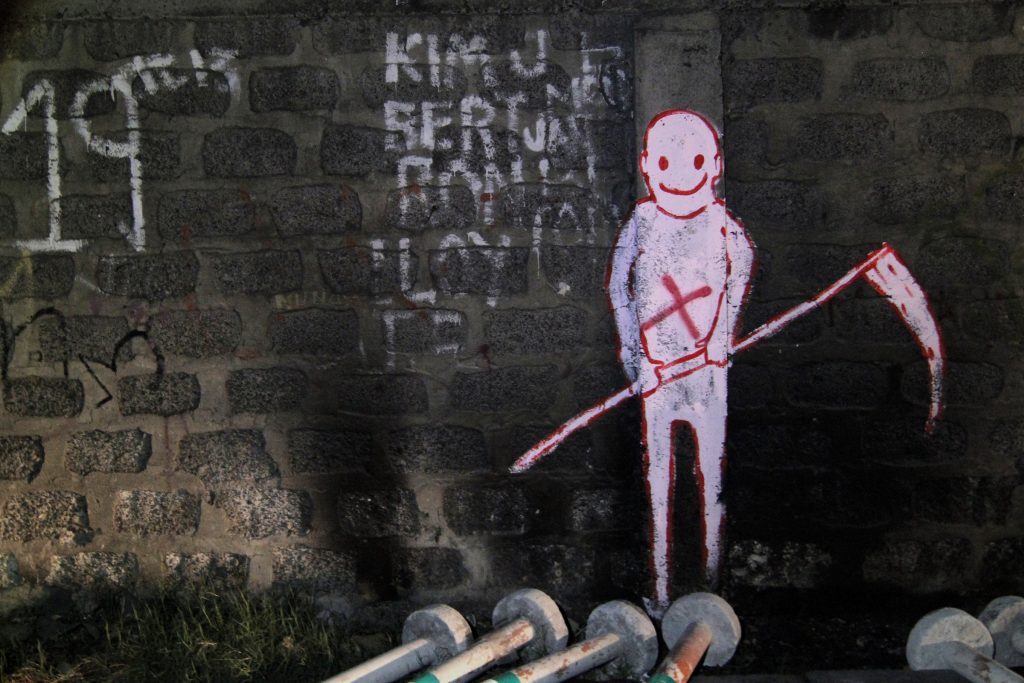
International watchdog Human Rights Watch noted an increase in the number of killings related to the Philippines’ “war on drugs” even amidst the coronavirus pandemic in the past months.
In a report this week, the group said the Philippine government’s own statistics revealed that state security forces “killed 50 percent more people” from April to July than in the preceding four months.
Carlos Conde, HRW researcher in Asia, said police have killed 155 people in its anti-narcotics operations during the lockdown period, while 103 people were killed from December 2019 to March 2020.
“The number of fatalities in these ostensible drug enforcement raids, in which the police routinely claimed that the victims fought back, jumped dramatically from the 26 deaths recorded by the [Philippine Drug Enforcement Agency] in five months from July to November 2019,” said Conde.
Official government data show that 5,810 people have been killed in the government’s war on drugs from July 2016 to July this year.
This figure only covers deaths in “legitimate” police anti-drug operations. Media reports and rights groups claimed that the “war” against illegal drugs has already claimed at least 30,000 lives.
Conde said thousands of other drug suspects have been killed by unidentified assailants, “many of whom are believed to be plainclothes police officers or vigilantes.”
He noted that the United Nations Office of the High Commissioner for Human Rights has reported in June 2019 that more than 8,600 people have died in the country’s “war” on drugs.
Conde urged the United Nations Human Rights Council, which is set to convene later this month, to “once again tackle” the issue of rights abuses in the Philippines.
“The government is expected to continue to deny the allegations rather than offer a constructive response,” he said.
“But as the government’s own statistics show, the atrocities in the ‘drug war’ have worsened, even as the country suffers the worst in the region from the pandemic,” said Conde.

Catholic church leaders have expressed concern over the reported increase in drug-related killings while the country faces the challenges brought about by the global health and economic crises.
Bishop Broderick Pabillo, apostolic administrator of the Archdiocese of Manila, said the report “is very alarming,” adding that the killings “add more suffering to the people, especially the poor.”
The prelate said it seemed that the police have “not learned the lesson that these killings won’t stop the flow of drugs in the country.”
Bishop Pabillo said the government’s “war” on drugs has already been proven a failure.
Bishop Arturo Bastes, retired prelate of Sorsogon, said the Philippines has become the “land of death” caused by the government’s “anti-poor and anti-people policies.”
The bishop said the country’s new anti-terrorism law has already spread fear among the people.
“The government’s failure to address the pandemic has claimed thousands of lives and the war on drugs continuous to kill the poor,” he said.
Last month, President Rodrigo Duterte lashed out at human rights groups for their criticisms on the government’s anti-narcotics campaign.
The president lamented that human rights activists are only focused on doing the body count of those who died in the anti-illegal drugs crackdown.
He also questioned the real motives of human rights advocates who he said are vehemently against the government’s war on drugs.
Duterte again renewed his call to impose the death penalty on drug-related offenders, pointing out that countries like China, Malaysia, and Indonesia do such punishment for those convicted of drug-related crimes.
He said solving the illegal drugs problem in the country will enable Filipino parents to realize their dream of seeing their children live normally as they grow up.
Source: Licas Philippines
0 Comments